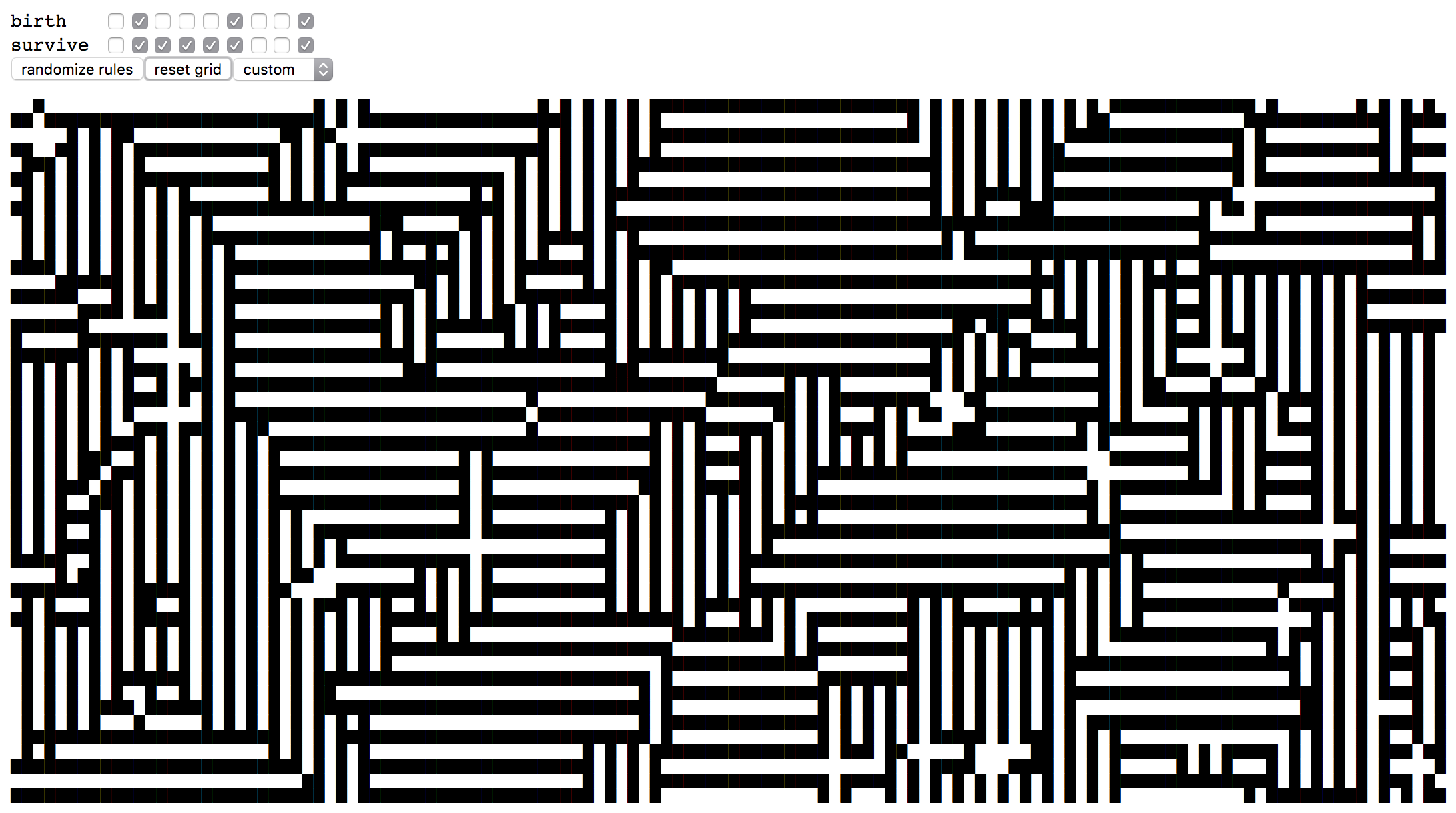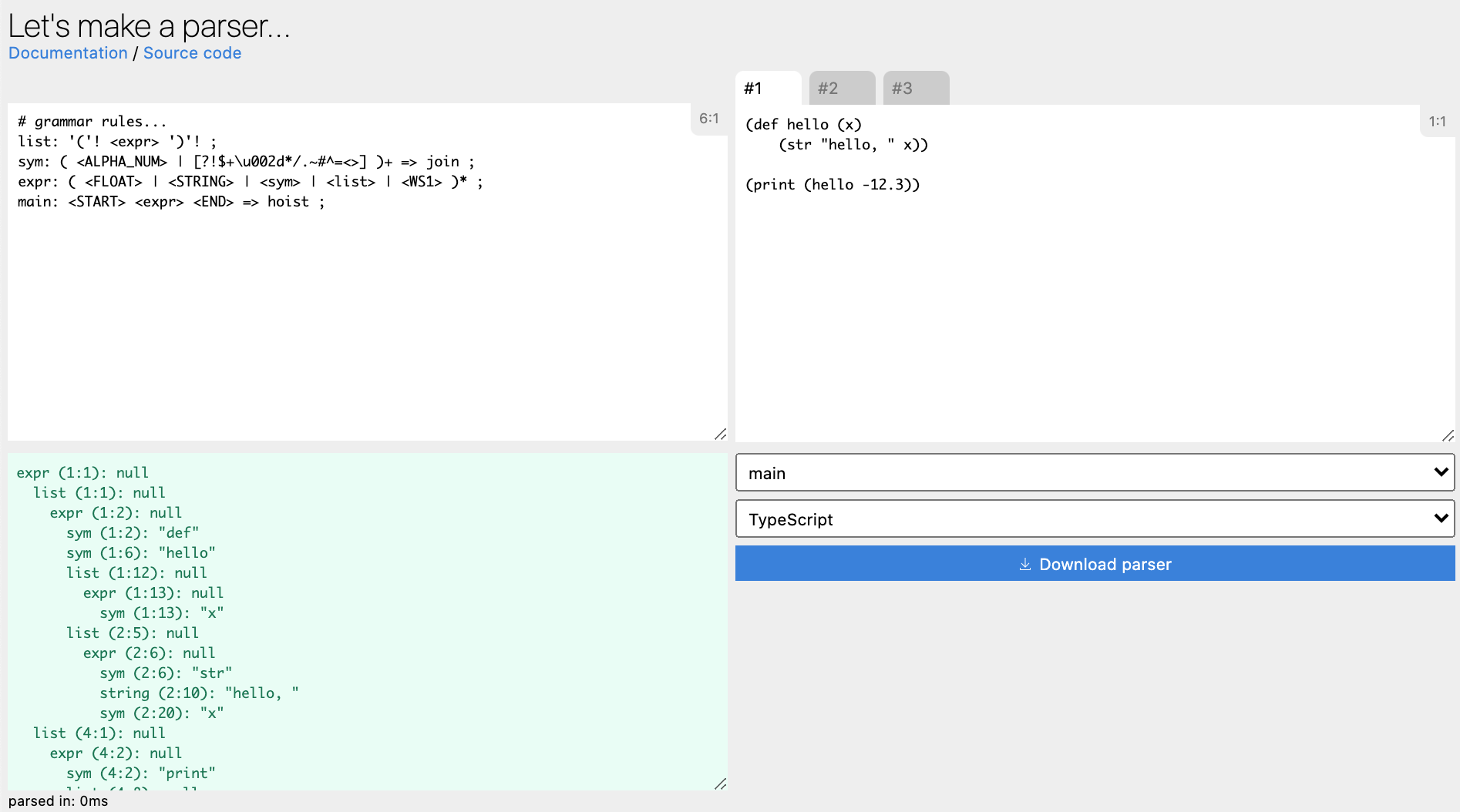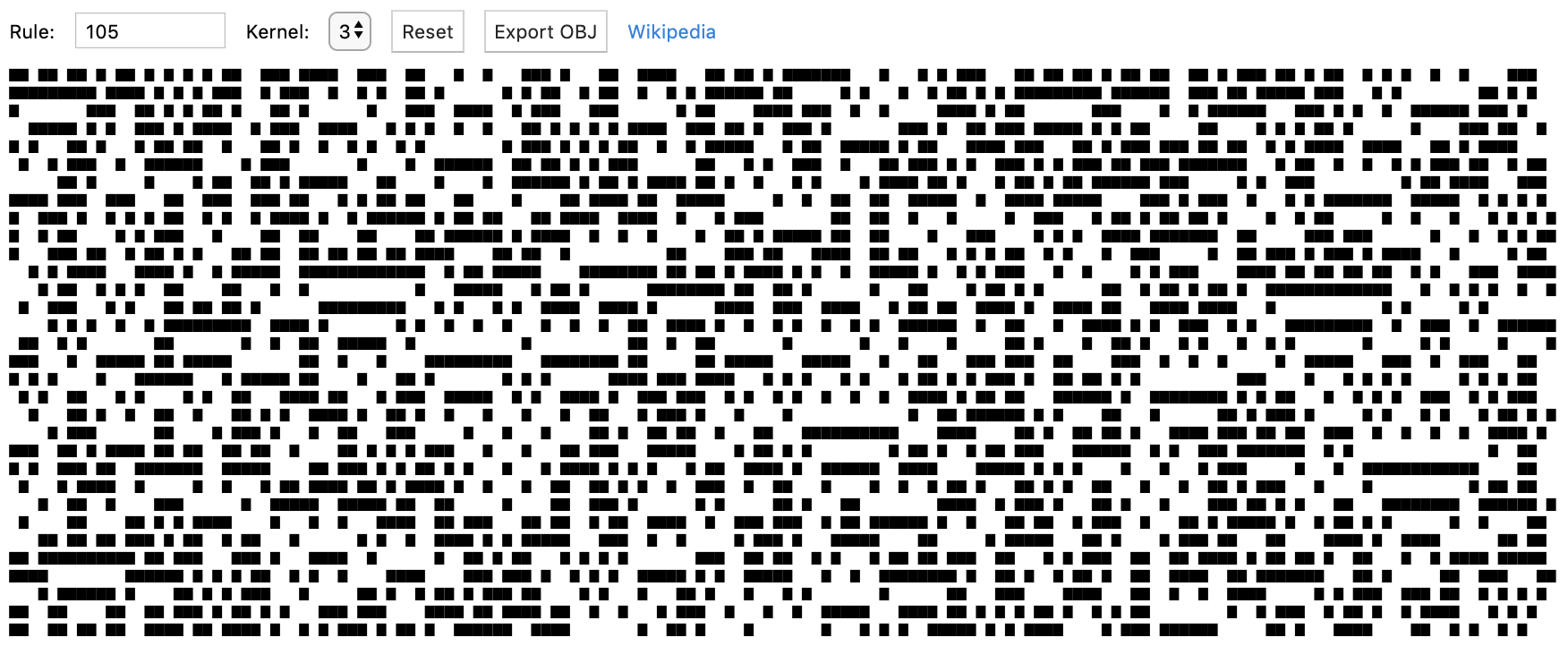This project is part of the @thi.ng/umbrella monorepo and anti-framework.
Binary data related transducers & reducers. This is a support package for @thi.ng/transducers.
Like the transducers and reducers defined in @thi.ng/transducers, all functions defined in this package too accept an optional input iterable for direct use.
STABLE - used in production
Search or submit any issues for this package
- @thi.ng/binary - 100+ assorted binary / bitwise operations, conversions, utilities, lookup tables
- @thi.ng/bitstream - ES6 iterator based read/write bit streams with support for variable word widths
- @thi.ng/unionstruct - C-style struct, union and bitfield read/write views of ArrayBuffers
yarn add @thi.ng/transducers-binaryES module import:
<script type="module" src="https://cdn.skypack.dev/@thi.ng/transducers-binary"></script>For Node.js REPL:
const transducersBinary = await import("@thi.ng/transducers-binary");Package sizes (brotli'd, pre-treeshake): ESM: 2.50 KB
- @thi.ng/binary
- @thi.ng/compose
- @thi.ng/errors
- @thi.ng/hex
- @thi.ng/random
- @thi.ng/strings
- @thi.ng/transducers
Several projects in this repo's /examples directory are using this package:
| Screenshot | Description | Live demo | Source |
|---|---|---|---|


|
Figlet-style bitmap font creation with transducers | Demo | Source |
 |
2D transducer based cellular automata | Demo | Source |
 |
Parser grammar livecoding editor/playground & codegen | Demo | Source |
 |
1D Wolfram automata with OBJ point cloud export | Demo | Source |
import * as tx from "@thi.ng/transducers";
import * as txb from "@thi.ng/transducers-binary";// 10 samples with 50% probability of drawing a 1
[...txb.randomBits(0.5, 10)]
// [ 1, 0, 1, 1, 0, 1, 0, 1, 1, 0 ]
// infinite iterator without 2nd arg, so limit with `take()`
[...tx.take(10, txb.randomBits(0.1))]
// [ 0, 0, 0, 0, 0, 0, 1, 0, 0, 0 ]
import { Smush32 } from "@thi.ng/random";
// with seeded PRNG
[...txb.randomBits(0.5, 10, new Smush32(12345678))]
// [ 0, 0, 1, 1, 0, 0, 0, 0, 1, 0 ]This is a higher-order transducer, purely composed from other transducers. See code here.
src = [65, 66, 67, 68, 69, 70, 71, 72, 73, 74, 33, 48, 49, 50, 51, 126, 122, 121, 120]
[...txb.hexDump({ cols: 8, address: 0x100 }, src)]
// [ '00000100 | 41 42 43 44 45 46 47 48 | ABCDEFGH',
// '00000108 | 49 4a 21 30 31 32 33 7e | IJ!0123~',
// '00000110 | 7a 79 78 00 00 00 00 00 | zyx.....' ]The
bytes()
reducer transforms a stream of declarative data definitions (optionally
with Little-Endian encoding) into an Uint8Array.
const bytes = txb.bytes(
// initial buffer capacity (grows on demand)
32,
// structured data
[
// default order is Big-Endian
txb.u32(0xdecafbad),
// force Little-endian (also works for floats)
txb.u32(0x44332211, true),
// all strings will be utf-8 encoded
txb.str("vec4"),
// use little-endian for each of these array vals
txb.f32array([1, 2, 3, 4], true),
txb.u8(0x2a)
]
);
console.log(tx.str("\n", txb.hexDump({}, bytes)));
// 00000000 | de ca fb ad 11 22 33 44 76 65 63 34 00 00 80 3f | ....."3Dvec4...?
// 00000010 | 00 00 00 40 00 00 40 40 00 00 80 40 2a 00 00 00 | ...@..@@...@*...Decompose / transform a stream of fixed size words into their bits:
[...txb.bits(8, [0xf0, 0xaa])];
// [ 1, 1, 1, 1, 0, 0, 0, 0, 1, 0, 1, 0, 1, 0, 1, 0 ]
console.log(
tx.transduce(
tx.comp(
txb.bits(8),
tx.map((x) => (x ? "#" : ".")),
tx.partition(8),
tx.map((x) => x.join(""))
),
tx.str("\n"),
[0x00, 0x18, 0x3c, 0x66, 0x66, 0x7e, 0x66, 0x00]
)
);
// ........
// ...##...
// ..####..
// .##..##.
// .##..##.
// .######.
// .##..##.
// ........Extended to transform longer strings (taken from the bitmap-font example, live demo):
// font lookup table
const chars = {
a: [0x00, 0x18, 0x3c, 0x66, 0x66, 0x7e, 0x66, 0x00],
b: [0x00, 0x7c, 0x66, 0x7c, 0x66, 0x66, 0x7c, 0x00]
};
// re-usable transducer
const xfJoin = tx.map((x) => x.join(""));
// higher order transducer to transform single char from string
const xfChar = (i) =>
tx.comp(
tx.pluck(i),
txb.bits(8),
tx.map((x) => (x ? "#" : ".")),
tx.partition(8),
xfJoin
);
// transform entire string
const banner = (src) =>
tx.transduce(
tx.comp(
// dynamically create `xfChar` transducers for each char
// and run them in parallel via `multiplex()`
tx.multiplex(...tx.map((i) => xfChar(i), tx.range(src.length))),
// then join the results for each line
xfJoin
),
// use `str()` reducer to build string result
tx.str("\n"),
// convert input string into stream of row-major bitmap font tuples
tx.zip(...tx.map((x) => chars[x], src))
);
console.log(banner("abba"));
// ................................
// ...##....#####...#####.....##...
// ..####...##..##..##..##...####..
// .##..##..#####...#####...##..##.
// .##..##..##..##..##..##..##..##.
// .######..##..##..##..##..######.
// .##..##..#####...#####...##..##.
// ................................Unlike JS default btoa() / atob() functions which operate on
strings, these transducers stepwise convert byte values to base64 and
back.
// here we first add an offset (0x80) to allow negative values to be encoded
// (URL safe results can be produced via opt arg to `base64Encode`)
enc = tx.transduce(
tx.comp(tx.map((x) => x + 0x80), txb.base64Encode()),
tx.str(),
tx.range(-8, 8)
);
// "eHl6e3x9fn+AgYKDhIWGhw=="
// remove offset again during decoding, but (for example) only decode while val < 0
[
...tx.iterator(
tx.comp(
txb.base64Decode(),
tx.map((x) => x - 0x80),
tx.takeWhile((x) => x < 0)
),
enc
)
];
// [ -8, -7, -6, -5, -4, -3, -2, -1 ]
buf = tx.transduce(
tx.comp(txb.utf8Encode(), txb.base64Encode()),
tx.str(),
"beer (🍺) or hot beverage (☕️)"
);
// "YmVlciAo8J+Nuikgb3IgaG90IGJldmVyYWdlICjimJXvuI4p"
tx.transduce(tx.comp(txb.base64Decode(), txb.utf8Decode()), tx.str(), buf);
// "beer (🍺) or hot beverage (☕️)"If this project contributes to an academic publication, please cite it as:
@misc{thing-transducers-binary,
title = "@thi.ng/transducers-binary",
author = "Karsten Schmidt",
note = "https://thi.ng/transducers-binary",
year = 2018
}© 2018 - 2023 Karsten Schmidt // Apache License 2.0



